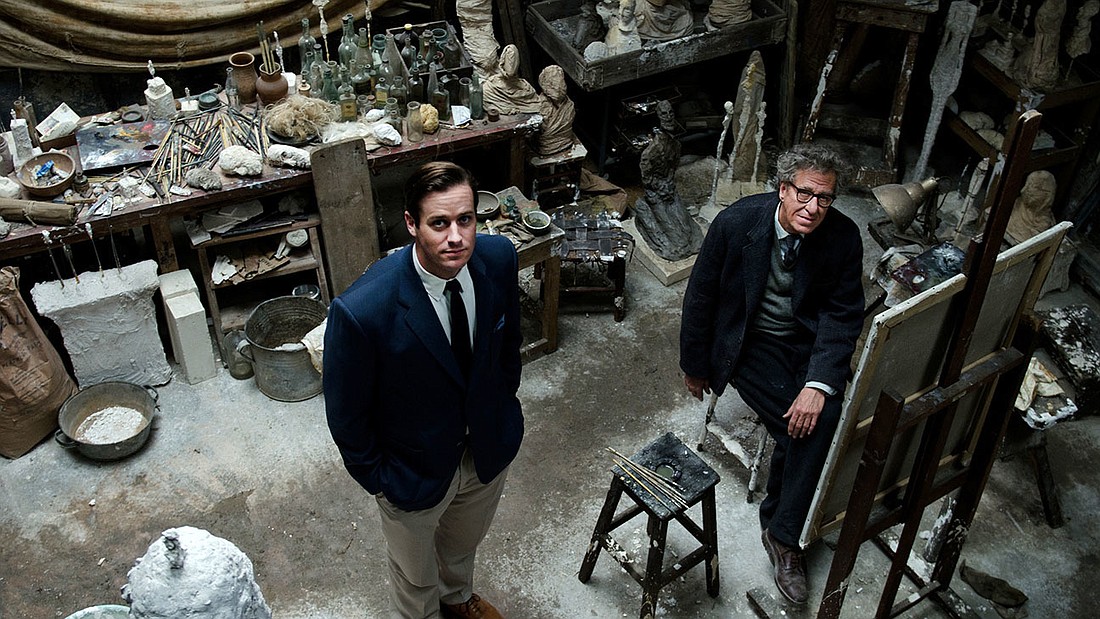- November 22, 2024
-
-
Loading

Loading

In 1964, renown Swiss painter and sculptor Alberto Giacometti invited American writer James Lord to sit for a portrait. He told him that it would take a few hours. It did not. "Final Portrait" chronicles their relationship which develops during the process, and it's one delightful ride.
Set in Paris, the recounting is based on Lord's (Armie Hammer) recollection of the amusing and frustrating time he spent with Giacometti (Geoffrey Rush). It begins with Lord feeling honored for having been asked to be Giacometti's subject. But when one day turns into two, three and so on, Lord becomes anxious about how long this may continue. You see, Giacometti believes that a painting is truly never finished.
Lord has to repeatedly cancel his scheduled flights home, while the belligerent and neurotic artist could care less. Giacometti's wife (Sylvie Testud) is also becoming intolerant of her husband's shameless behavior with his mistress and muse (Clemence Poesy). Giacometti's obsessions are becoming exhausting for those having to endure his idiosyncrasies. The only one oblivious to them is his devoted brother (Tony Shalhoub).
Stanley Tucci directs and co-scripts with James Ford. It's a perfect pairing as is the one between Rush and Hammer. The dialogue is biting, outrageous and colorful. There's a grayish hue to the film which is caught on a hand-held camera. And an abundance of close-ups and inspiring music enhance the subtle chaos playing out on screen, elevating the artistic process.
But it's the dynamics between Rush and Hammer playing off one another that propels "Final Portrait" to greatness. Off-the-wall comments such as, "Have you ever wanted to be a tree?" and "Have you ever killed anyone?" by the artist never really faze his model. Their evolving camaraderie seems ever so natural when in essence it should be tumultuous. And Hammer's arresting good looks contrast brilliantly with Rush's scruffy gruffness.
What could have been a "watching paint dry" type of film, "Final Portrait" is anything but. Due to impeccable acting and directing it's a rare and exhilarating experience.